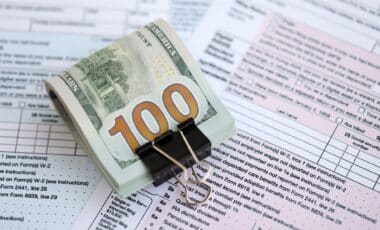The UK housing market experienced a significant downturn in November, with average asking prices for newly listed homes falling by £5,366, according to data from Rightmove.
This 1.4% monthly decline is sharper than the typical November drop of 0.8%, reflecting a combination of seasonal trends and ongoing economic uncertainty. Rising stamp duty rates, fluctuating mortgage costs, and cautious buyer behaviour following the autumn budget have created challenges for both sellers and buyers in an already cooling housing market.
Autumn Budget and Mortgage Trends Add Pressure
The recent autumn budget had a noticeable impact on market sentiment, especially after it confirmed an increase in stamp duty charges for most home-movers, second-home buyers, and some first-time buyers. This policy change led to a decline in buyer demand in the weeks leading up to and immediately following the announcement, as prospective buyers delayed their plans in anticipation of higher costs. According to experts at Rightmove, these short-term market jitters contributed to the steeper-than-usual price decline observed in November.
At the same time, changes in mortgage rates are adding complexity to the housing market. Although the Bank of England has implemented base rate cuts, bringing the benchmark interest rate to 4.75%, the cost of fixed-rate mortgages has risen. According to Moneyfacts, the average two-year fixed mortgage rate increased to 5.49% in November, up from 5.36% in mid-October, while the five-year fixed rate rose to 5.22%. While these rates are still lower than the 6.19% seen a year ago, the increase reflects broader economic uncertainties, including higher swap rates driven by inflationary concerns and global financial instability.
Despite these challenges, some positive trends have emerged. Rightmove reports that new listings have increased by 6% compared to the same period last year, and the number of agreed sales is 26% higher than in November 2023. This suggests that while affordability concerns persist, there is still underlying demand in the market.
Mixed Outlook for the Housing Market
While current conditions appear challenging, analysts are cautiously optimistic about the long-term prospects of the UK housing market. According to The Guardian, Rightmove forecasts a 4% increase in asking prices in 2025, driven by a combination of easing mortgage rates and pent-up demand from buyers. The property portal notes that while affordability remains a concern, lower borrowing costs could significantly boost buyer activity, particularly among first-time buyers and those looking to upsize.
Tim Bannister, Rightmove’s director of property science, expressed optimism despite recent price declines. “Zooming out of these short-term trends, the big picture of market activity remains positive compared to the quieter market at this time last year. This sets us up for what we predict will be a stronger 2025 in both prices and the number of homes sold, particularly if mortgage rates fall by enough to improve affordability for more of the mass market,” he stated.
However, the housing market’s trajectory will depend heavily on economic conditions and consumer confidence. Rising inflation and global economic uncertainty continue to pose risks, potentially limiting the pace of recovery in the housing sector.
Seasonal Slowdown Expected
As the festive season approaches, market activity is expected to decline further, reflecting the typical seasonal slowdown seen in December. Historically, fewer homes are listed, and transaction volumes fall as both buyers and sellers focus on holiday preparations. This trend is expected to be more pronounced this year due to the compounded effects of economic uncertainty and affordability challenges.
Despite these immediate pressures, Rightmove’s data suggests that market sentiment has improved compared to the same period in 2023. Increased listings and a higher number of sales indicate that demand is still present, albeit tempered by current conditions. Analysts believe that a stronger 2025 is likely, with reduced mortgage rates expected to release some of the pent-up demand that has accumulated over the past year.









